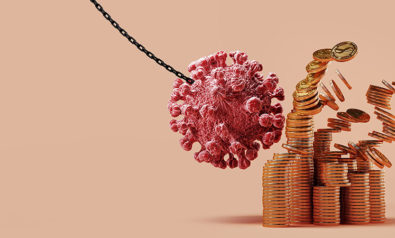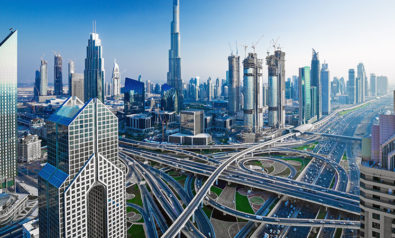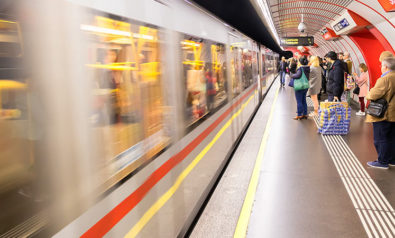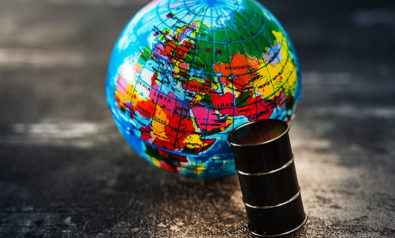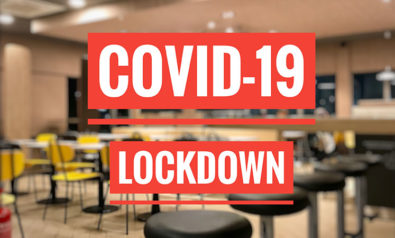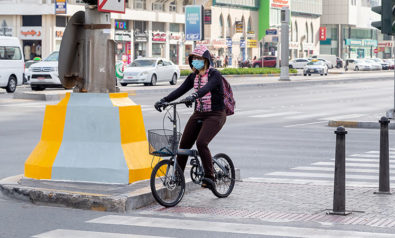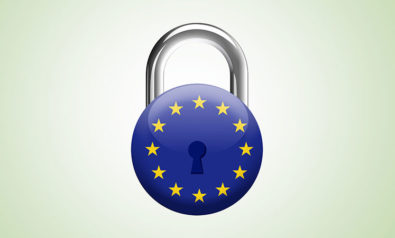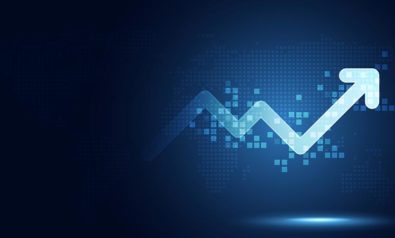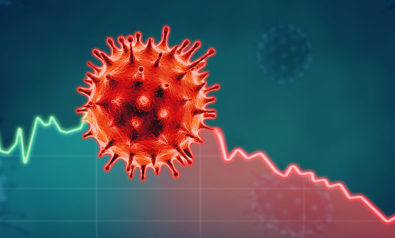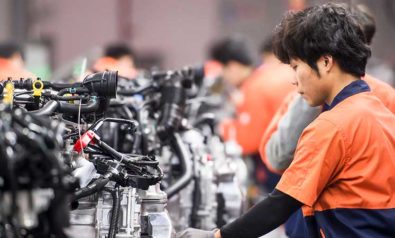A young Karl Marx once famously wrote that history repeats itself “the first time as tragedy, the second time as farce.” At the height of the 2008-09 economic recession, Barack Obama’s administration unveiled an $832-billion stimulus package aimed at stabilizing the fractured banking system. While the Obama stimulus helped stabilize the US economy, its provisions put the interests of big banks and investment firms over that of individuals and small businesses. Wall Street trumped Main Street and arguably paved Donald Trump’s path to the White House.
Europe’s Moment of Truth Is Obviously About Debt
Obama’s stimulus allowed and even encouraged corporations such as J.P. Morgan Chase and Goldman Sachs to swallow up smaller competitors. The CEOs of firms responsible for the financial crisis were not only exempt from criminal prosecution but given bonuses from taxpayer money. These millionaires ended up ruining their companies and still walked away with state funds. This was capitalism on the upside and socialism on the downside. It led to outrage. Both Occupy Wall Street of the left and the Tea Party movement of the right were born as a result.
Under President Obama, banks that were “too big to fail” became even bigger to fail. They were given a license to speculate on American taxpayer money. Timothy Geithner, the secretary of the treasury, left his cushy government job for an even cushier private one. After bailing out Wall Street, he became the president of Warburg Pincus, a noted private equity firm. Needless to say, he was and continues to be paid handsomely.
Geithner represents a sinister trend in American economic policymaking. Wall Street has taken over the US Treasury. Two of Geithner’s predecessors, Robert Rubin and Hank Paulson, marched in to take command of the Treasury from Goldman Sachs. Steve Mnuchin, the current big boss of the Treasury, also worked at Goldman, as did his father.
If this was Nigeria or India, The New York Times would have carried a full story on incorrigibly corrupt Third World elites. However, this sordid story of American bankers coming and going through a revolving door from Wall Street to the Treasury and vice versa does not quite count as corruption for most Americans media houses. The same incestuous Ivy League elite runs both American media and finance.
While most journalists might give these sleazy arrangements a pass, ordinary Americans have become increasingly unhappy with what they see as a corrupt political system and rigged economic arrangement. Even as inequality has increased, social mobility has decreased. That is why President Trump’s slogan, “Make America Great Again,” resonated with voters in 2016. Many did remember a time when they could hope to lead better lives than their parents. The same dissatisfaction fueled Senator Bernie Sanders, an avowed socialist, to national prominence in both 2016 and 2020. Unlike Trump, Sanders could not mount a successful coup in his party.
The Rich Gain and the Poor Suffer, Again
Eleven years after the Obama bailout, another crisis has hit America. Thanks to the COVID-19 pandemic and an inept Trump administration, the economy is experiencing its biggest crisis since the Wall Street crash of 1929. Democrats and Republicans cooperated for once to pass the largest stimulus bill in American history. Of the $2.3-trillion package, $660 billion is earmarked for government-backed loans to save small businesses. Named the Paycheck Protection Program (PPP), this effort to save the little guys seems to be geared more toward the big boys. It smells almighty fishy, if not rotten.
It is important to examine what the PPP promises. Loans “will be fully forgiven if the funds are used for payroll costs, interest on mortgages, rent, and utilities.” At least 75% of the forgiven amount must go to payroll. Loan repayments will be “deferred for six months.” Loans will be issued without collateral or personal guarantees. Also, “neither the government nor lenders will charge small businesses any fees.”
If it sounds too good to be true, then it usually is. The PPP is no exception. There are many reasons why the PPP has failed already.
First, the Small Business Administration (SBA) is responsible for the PPP. This small government agency has been overwhelmed by millions of loan applications, as have the banks partnering with it. Second, implementation has been so haphazard that banks are confused as to who to give loans to. Third, the loans were distributed on a first-come, first-serve basis. The money ran out quickly and few small businesses could file their applications in time. Fourth, the deadline of using the money by June and the dictum that 75% of the loan had to go to payroll was idiotic. Many small businesses decided not to apply because they simply could not qualify. Finally, Wall Street prioritized Goliaths over Davids for fat fees. Banks raked in $10 billion in two weeks for just processing loans given out by SBA.
Shake Shack and Ruth’s Chris Steak House received PPP loans worth $10 million and $20 million, respectively, but returned them after public outcry. Denny’s announced that franchisees that own more than half of its stores have received PPP loans, with more Denny’s restaurants still waiting for funds. The One Group Hospitality, a publicly-traded company that runs steak-house chain STK, had received $18 million by early May. The Los Angeles Lakers, which has a net worth of $4.4 billion, won a $4.6-million loan. Large, troubled companies have taken the money supposed to go to small, struggling businesses. If this is not corrupt, then little else is. America is increasingly eerily similar to the banana republics its corporations used to run in Latin America.
Doing “God’s Work” Pays
To understand how all of this happened, we need to look no further than the banks. In 2009, Lloyd Blankfein created quite a stir. The preternaturally confident CEO of Goldman Sachs declared banks were doing “God’s work.” After all, they helped “companies to grow by helping them to raise capital.” These growing companies created wealth. This led to “jobs that create more growth and more wealth.” In his view, banks “have a social purpose.” Big profits and fat bonuses were a small price to pay for these dream builders of the global economy. How could anyone remotely sensible disagree?
It seems curmudgeonly small businesses might. Citi’s private bank filled in applications for its customers. The minimum account size at the bank is $25 million. Clearly, the definition of small is relative. Other banks were determined not to be left behind. Some banks provided highly-personalized, so-called concierge service to their clients. They did god’s work by cutting through the red tape for their rich clients. In contrast, small businesses could only fill out online forms and wait for banks to get back to them. All too often, the banks never did.
There is a bigger issue at stake. Even if small businesses could get PPP loans, many would be wary of taking them. There is far too much uncertainty. For small businesses, uncertainty is an even bigger risk to solvency than liquidity. For example, no one knows when restaurants could reopen following the coronavirus shutdown, what type of restrictions would be mandated and whether the public might recover its appetite to eat out. If social distancing rules kicked in and restaurants had to operate at, say, 50% capacity, few would be able to survive in an industry with already wafer-thin margins. Indeed, many historical restaurants have decided to throw in the towel altogether and have let their patrons know they will not be reopening.
What was originally a three-week hiatus has become a three-month ordeal. From the beginning of March, authorities have issued “shelter-in-place” orders with the assumption that these would be temporary measures. Workers are finding these measures as temporary as soldiers in World War I found going to the front. Interestingly, it turns out that Memorial Day (May 25), which is when the US remembers those who died serving in the military, has come and gone, but Americans have yet to get back to work.
To add fuel to the fire, the brutal killing of yet another black man by a white policeman has ignited protests and riots across the country. Looters smashed store windows this past week, emulating large corporations who had looted a $660-billion loan forgiveness program meant for small businesses. Once, Mississippi burned. Today, a spark in Minnesota has set off a tinderbox in America.
In the meantime, over 42 million Americans have applied for unemployment and are going hungry even as small dairies in Wisconsin and Ohio have dumped thousands of gallons of fresh milk into lagoons and manure pits. In Idaho, farmers have buried millions of kilograms of onions. In South Florida, a fertile region supplying much of the East Coast, beans, cabbages and perfectly ripe vegetables are being thrown back into the soil. At the same time, millions of American families are lining up for hours at food banks and leaving with little or even nothing.
It is small businesses, farmers and ordinary Americans who need PPP loans, not corporations or their millionaire CEOs or their wealthy shareholders. In the Obama bailout, bankers laughed all the way to the bank. Today, they are doing god’s work again by selling indulgences à la the 16thCatholic Church to the likes of Denny’s. Banks pocket fees, Denny’s gets the money. The Trump bailout is leaving small businesses and farmers high and dry. As Hamlet remarked, “the time is out of joint” and as Yanis Varoufakis observes, “the weak suffer what they must.”
The views expressed in this article are the author’s own and do not necessarily reflect Fair Observer’s editorial policy.
Support Fair Observer
We rely on your support for our independence, diversity and quality.
For more than 10 years, Fair Observer has been free, fair and independent. No billionaire owns us, no advertisers control us. We are a reader-supported nonprofit. Unlike many other publications, we keep our content free for readers regardless of where they live or whether they can afford to pay. We have no paywalls and no ads.
In the post-truth era of fake news, echo chambers and filter bubbles, we publish a plurality of perspectives from around the world. Anyone can publish with us, but everyone goes through a rigorous editorial process. So, you get fact-checked, well-reasoned content instead of noise.
We publish 2,500+ voices from 90+ countries. We also conduct education and training programs
on subjects ranging from digital media and journalism to writing and critical thinking. This
doesn’t come cheap. Servers, editors, trainers and web developers cost
money.
Please consider supporting us on a regular basis as a recurring donor or a
sustaining member.
Will you support FO’s journalism?
We rely on your support for our independence, diversity and quality.




